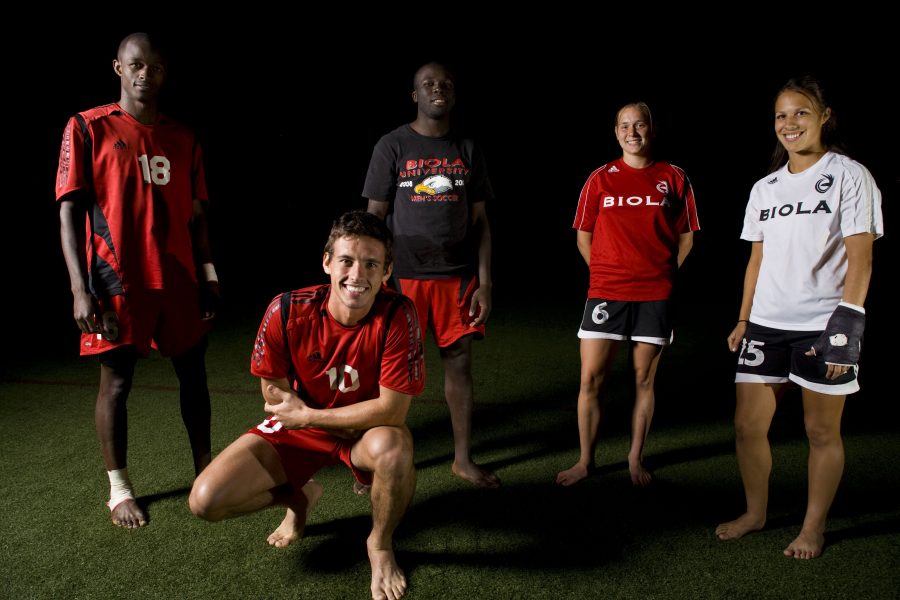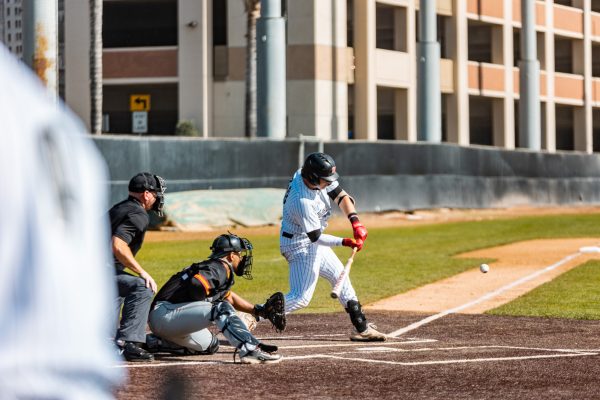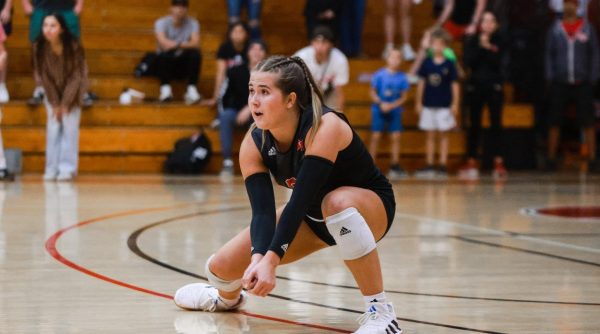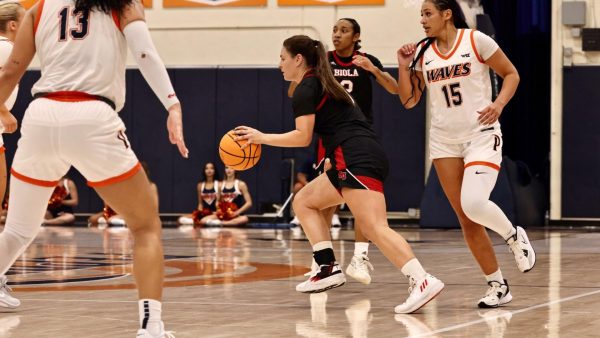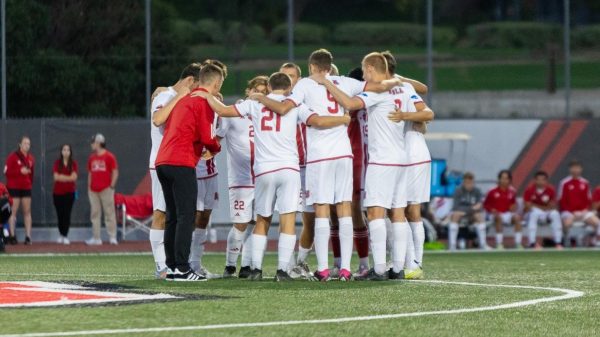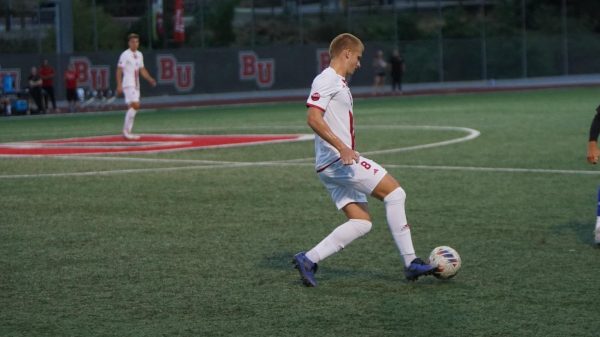International sports students appreciate their Biola opportunities
Most Biola athletes will mention what a unique opportunity they have to play sports at Biola with a focus not solely on winning, but on representing Jesus Christ while playing. But for international students, the chance to express their beliefs while on the field was not only as foreign an idea as the land they came to, but a can’t-miss opportunity.
Kennedy Chongo, HumbertoToscan, Shalom Bako, Gillian McPherson, and Amy Atkinson came from different countries all over the world to play soccer at Biola. The five players represent a total of four continents across the globe. Photo by Mike Villa
November 5, 2008
Boxing legend Muhammad Ali once said, “Champions aren’t made in the gyms. Champions are made from something they have deep inside them – a desire, a dream, a vision.”
For athletes at Biola University, that desire is often something even more meaningful than making it to the professional level or even a national championship.
Most Biola athletes will mention what a unique opportunity they have to play sports at Biola with a focus not solely on winning, but on representing Jesus Christ while playing.
But for international students, the chance to express their beliefs while on the field was not only as foreign an idea as the land they came to, but a can’t-miss opportunity.
“It is something groundbreaking,” said junior Shalom Bako, men’s soccer defender, who is from Nigeria. “No matter what language you speak, you could bring people from every single country in the world, they don’t have to speak words. They can speak with their feet.”
Bako, one of five international students playing for Biola’s soccer teams, grew up playing forward, did so during his first years at Biola, and has since been converted to a left back.
But change is a familiar concept to those students.
Sophomore Kennedy Chongo, a forward for the men’s soccer team, spent most of his life in Zambia before coming to the states in 2007 to attend Trinity Western University in Chicago.
“[I’ve noticed] an ability to adjust,” Chongo said of himself. “It was a shock and I thought it was going to take such a long time [to adapt to the game and culture in America], but I have been here a year and adjusted rather well.”
For others, that change not only occurred in the States, but because of Biola specifically.
“Before [coming to Biola], God did not exist on the field,” said sophomore Gillian McPherson, a women’s soccer defender from Canada. “There really wasn’t any devotions or praying for each other like there is here.”
The change in mindset is not only applied off the field for these athletes, but on it. While the American game of soccer is considered by much of the world to be catching up in terms of style, the game in the States is also considered to be much more physical.
“Coming from Nigeria, the emphasis is one-on-one skills,” explained Bako. “People are really good at dribbling and ball control. There are a lot of people at the national level who are skilled in that way, so kids grow up wanting to be like them. The game in America is still developing, so it is a lot more physical, while other countries have developed technique for hundreds of years.”
That physicality is even more evident in American sports such as football, hockey, lacrosse, and even basketball, where making proper contact is taught on the most elementary of levels. While not all four of those sports originated in America, the aggressive, hard-nosed nature of the culture is evident in the strategic planning involved.
Sophomore men’s basketball guard Elliott Tan grew up in Taiwan playing basketball and has spent his first years at Biola adjusting to physicality similar to that in soccer.
“Overall, guys here are bigger, stronger, more athletic, and more fundamentally sound,” explained Tan. “In Taiwan, players are faster and everyone can shoot. But here there is such an emphasis on playing defense that you have to adjust because defenders are going to be physical.”
Still, combining practicing one’s faith while on the field can be a difficult task when physical play causes emotions to run high.
“[My parents] raised me to give God glory through everything you do, especially if he’s given you talent in a sport,” said sophomore Amy Atkinson, who grew up in Guam before coming to Biola as a defender for the women’s soccer team. “I had never been on a Christian team before coming here, so it looks a lot different. Individually you give it all to God, but being on team where you do it together is something special.”


